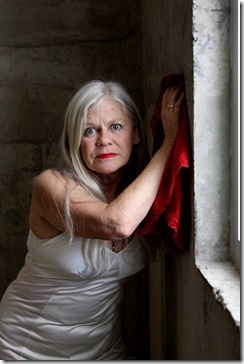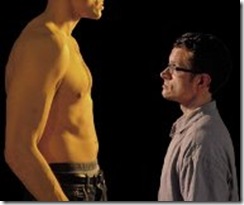Atlantic Fringe Festival in Halifax.
Notes by Patrick Langston. Running Aug. 28-Sept 7, this year’s Atlantic Fringe Festival in Halifax features about 60 companies and 300 shows. Most of the companies seem to be from Nova Scotia although the program fails to identify the origin or, frequently, even the name of the company (the website appears to have most of the missing information but is cumbersome).
Ottawa shows include Kavalier’s Kuriosities (Dead Unicorn Ink) and Mabel’s Last Performance (written by Megan Piercey Monafu and performed by Kathi Langston).
Unlike the centralized Ottawa Fringe Festival, venues in Halifax are widely disbursed. That’s a plus in that the city’s attractiveness makes the travelling around a pleasure but a minus in that the festival has no physical focus or, as far as I could determine, anywhere that artists and audiences can readily gather – somewhere like, say, the Ottawa fringe’s popular courtyard.
That absence of a physical centre also militates against the excitement that typifies a centralized festival where attendees constantly bump into each other and talk about shows. You can always text, of course, but that’s no match for face-to-face chatter.
Even so, the 24-year-old festival pulls in over 10,000 patrons annually and, with admission to shows costing as little as $3, it’s eminently affordable.
Mabel’s Last performance with Kathi Langston. Photo: Julie Laurin.
Kathi Langston gives a riveting performance as an aging actor facing the descent into the depths of dementia. Her face is a canvas that displays the most subtle shifts of emotion, from the utter elation that happy memories bring, to the clouds of confusion and doubt that scuttle across her mind. Her physicality shows Mabel’s state of mind in the bend of her spine or the skip in her step. The subject matter of the play is somber, but there are lovely moments of lightness and humour. An amazing performance in a play that beautifully explores a difficult subject.
Reviewed by Patrick Langston
The Adversary, Photo. Andrew Bailey from The Bus Stop Theatre.
Victoria-based Andrew Bailey is a superb storyteller who recreates his time as a caretaker at an inner-city church where he encountered a panorama of fascinating down-and-out characters and learned about street justice. This gripping piece blends the sharp observations of a good comic (Bailey is an award-winning comedian) with compassion and an innate sense of drama as Bailey recounts how his inherent idealism crossed paths with the lies, brutality, loyalty and unexpected moments of tenderness that comprise street life. Keep your fingers crossed that Bailey brings his show to the Ottawa Fringe Festival next year.
* * * *
Loki’s Big Dream
Museum of Natural History
Jim Dalling is a Toronto performer who has good intentions and knows how to connect with children but, at least on the basis of the show I saw, doesn’t realize that going the extra mile by editing and burnishing a show elevates it from acceptable to noteworthy. Drawing on his own life, he recreates the special relationship between an ambitious, loving grandfather and a curious, adoring grandson while reminding us that life is finite and that even those we see as all-powerful eventually fade and die. There’s some magic, some silliness, audience involvement and lots of physicality in his show, but it never achieves the transcendent moments it seeks.
* * * *
Country Song
The Company House
She may be a novice guitar player but Halifax’s Lee-Anne Poole sings a country tune with the flair and conviction of someone who knows that popular music can be not just entertainment but an existential journey. Performed in a bar, her show explores love, family, community and self: the traditional subjects of country music, in other words. Poole, however, lends her songs and stories poignancy and edge with telling details about, for example, her complicated relationship with her father or what it’s like to abandon your possessions when you move to another city. She frames it all by presenting herself as a nervous and reluctant performer, someone who knows only three chords on the guitar (here she implicitly references songwriter Howard Harlan’s famous quote that country music is “three chords and the truth.”) In fact, she adds at least two other chords during the show, a subtle tip-off that there’s a gulf between her pose as a frightened performer and the reality of her being a subtle and knowledgeable one. That gulf not only creates dramatic tension to draw us into her show, it also reminds us that country music is, at its core, about chasms almost too numerous to enumerate – between men and women, between an idealized past and a convulsed present, between good and evil, and between aspiration and reality.

